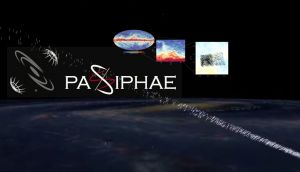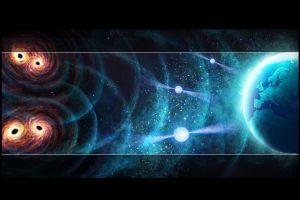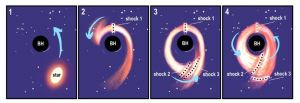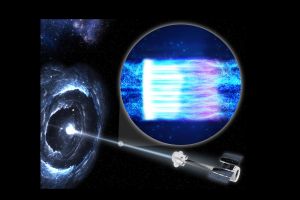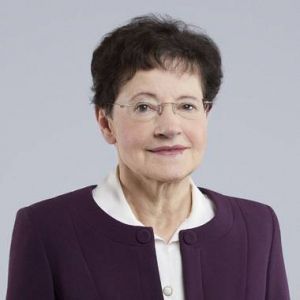Astrophysics, Space
Parade of the Planets: Stargazing nights in Heraklion with portable telescopes
The Institute of Astrophysics of the Foundation for Research and Technology-Hellas, with the support of the Municipality of Heraklion, is organizing two stargazing nights dedicated to the impressive parade of planets that currently adorns the night sky, on Saturday 8th of March and on Sunday 9th of March 2025, at 19:00 - 21:00, Heraklion Walls, Jesus Bastion.
Professor Vassilis Charmandaris appointed to the Space Science Advisory Committee of the European Space Agency
Mr. Vassilis Charmandaris, Professor of Astrophysics at the Dep. of Physics of the University of Crete and Director of the Institute of Astrophysics-FORTH and the Skinakas Observatory has been selected as a member of the Space Science Advisory Committee of the European Space Agency (ESA) for a period of three years starting on January 2025.
Prof. Charmandaris is the first Greek scientist to have ever been appointed to this advisory body.
A first glimpse at our Galaxy's magnetic field in 3D
Thanks to new sophisticated techniques and state-of-the-art facilities, Astronomy has entered a new era in which the depth of the sky can finally be accessed.
ERC Starting Grant Awarded at the Institute οf Astrophysics of FORTH to study Violent Phenomena around Supermassive Black Holes
Ioannis Liodakis, a NASA postdoctoral fellow at the Marshall Space Flight Center, was recently awarded the prestigious European Research Council (ERC) Starting Grant.
ERC Starting Grant awarded to a postdoctoral researcher at the Institute of Astrophysics of FORTH for her research on supermassive black holes
It is worth mentioning that FORTH hosts the largest number of ERC Grants (40) in Greece.
New scientific data show the way to unraveling the creation of the Universe, with the participation of the Institute of Astrophysics of FORTH
The European Pulsar Timing Array joins teams worldwide in announcing compelling evidence for gravitational wave signals of Cosmological origin.
Polarized light helps scientists understand what follows a sudden star death
"Polarization of light can provide unique information about the underlying processes in astrophysical systems” said Yannis Liodakis, lead author of the study, astronomer at FINCA and alumnus of the University of Crete.
The Best Thesis Prize “Emilios Harlaftis” 2023 of the Hellenic Astronomical Society awarded to Dr. Raphael Skalidis
Dr. Raphael Skalidis, graduate of the Physics Department of the University of Crete, was awarded the Best PhD thesis Prize - "Emilios Harlaftis" of the Hellenic Astronomical Society for 2023.
Black hole jet reveals its secrets!
The new study used IXPE to point at Markarian 501, a blazar in the constellation Hercules. This active black hole system sits at the center of a large elliptical galaxy.
“Nick Kylafis” Distinguished Lecture 2022
The 4th annual "Nicholas Kylafis" Distinguished Lecture, entitled "When black holes affect galaxies", was given by Professor Françoise Combes, Chair of Galaxies and Cosmology at the Collège de France and distinguished astrophysicist at Paris Observatory, on Thursday 6 October 2022 at 14.00 at the Central Amphitheatre of FORTH, with simultaneous webcast.
Page:12 | Next >



